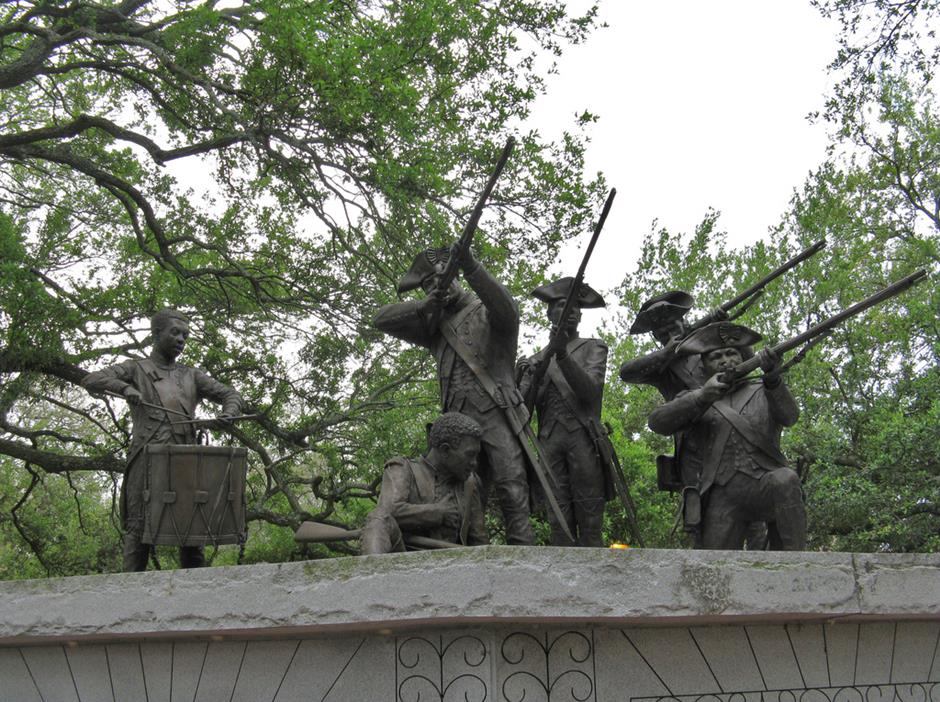 You don’t study history for long without developing a certain sense of irony.
You don’t study history for long without developing a certain sense of irony.
Recently our president was accused of talking disparagingly about Haiti (among other countries). That’s why I was intrigued when I found an article entitled “How Haitians Helped Win The American Revolution” by Pooja Bhatia.
Here’s the situation: In 1779, colonial rebels laid siege to the British in Savannah, GA. At that time, Haiti was a colony of our ally France, so a French admiral recruited 545 free men of color to help conduct the siege. Today there is even a statue in Savannah’s Franklin Square (pictured) depicting five black soldiers and a drummer boy who (as the story goes) would grow up to become Haiti’s first ruler, Henri Christophe. Haitian children are taught that this is where their ancestors developed the military experience, and the idea, that they could successfully fight for their own independence. Despite this historical link, many of us tend to look down on Haiti today. Ironic.
But history is always more complicated that what’s recorded. That French admiral actually tried to recruit white men without much success. He was then able to recruit free men of color with a combination of coercion and promises of respect, equality, and a higher social status.
Or course (surprise!), any promises made certainly weren’t kept. In Savannah, the Haitians dug a lot of trenches, but did little else. The siege failed, and although only one Haitian was killed and seven wounded, the rest were exiled — some to France, some to Charleston, and a third to Grenada. Did the American colonists appreciate the effort anyway? When the Haitian revolution succeeded in 1804, it was many years before we recognized the native government; nothing good could come from a republic of free blacks, right? Double ironic.
But the truest part of this story is Savannah may very well have given Haiti the motivation for their own revolution. Perhaps these men realized that no matter what they did for France, they would always be second-class citizens. (Historical reconstruction is complicated by the fact that the French didn’t think enough of these men to even record their names; they were identified by number only, so we can’t prove Christophe’s presence.) If their lot in life was to improve, they were going to have to do it themselves. Triple ironic.
But that’s the way history works. And maybe this story will get Haitians a bit more respect.
The complete article can be accessed at http://www.ozy.com/flashback/how-haitians-helped-win-the-american-revolution/61439? .
